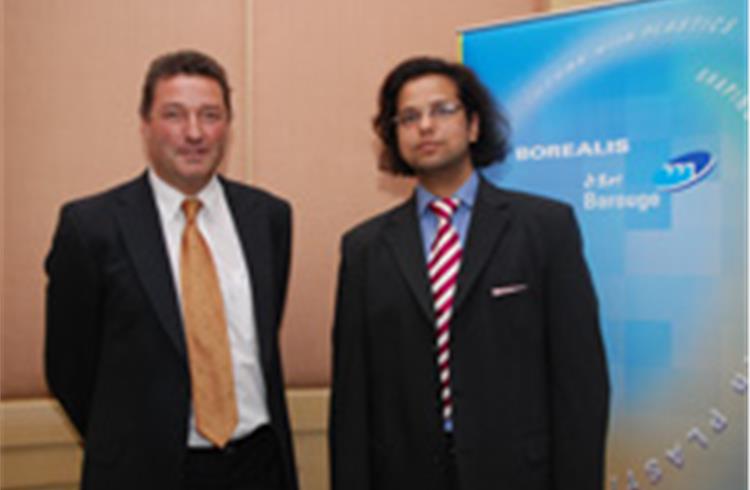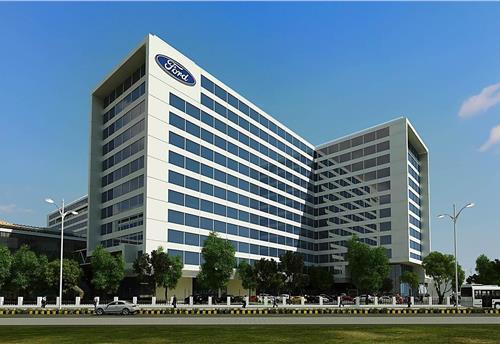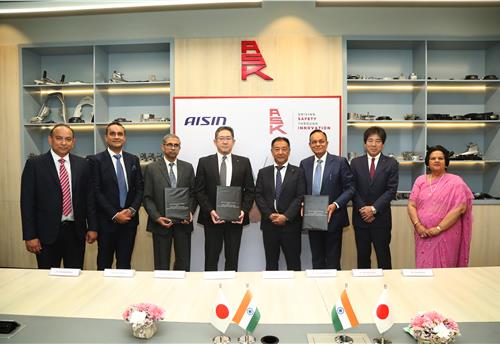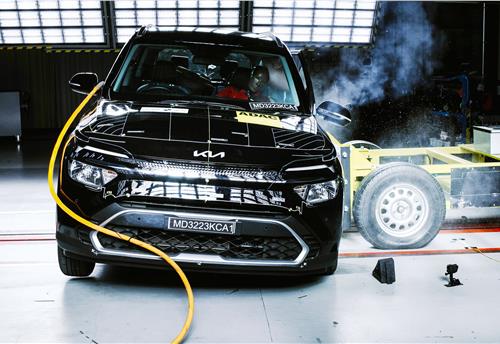Borouge to supply auto-grade PP
Plastics solutions provider targets Indian market and ties up with Machino Polymers to supply automotive-grade polypropylene resins.
Borouge will begin producing automotive-grade PP resins from the third quarter of 2010, when its first pair of four-reactor second-generation Borstar plants with combined annual capacity of 800,000 tonnes per year start up. They are part of a massive expansion of its Abu Dhabi complex that will add two more Borstar 2GPP plants in the next phase and increase its total PE and PP production capacity to 4.5 million tonnes when completed in 2014.
The company is also building a new compounding facility in Shanghai that will start operations in mid-2010 with a capacity for 50,000 tonnes/year with the potential to expand to 80,000 t/y, but this will exclusively serve the Chinese market. Rather than wait “at least four years” to set up a facility in India, it has decided instead to co-operate with Machino Polymers Ltd (MPL), a leading domestic supplier of PP compounds to the automotive industry with a 48 percent share. MPL at present sources generic polymers from Reliance but this tie-up allows it to expand its product range to include high-performance polypropylene from Borouge.
At present the arrangement between Borouge and MPL is a tolling agreement, under which Borouge will pay Machino to compound its Borstar polypropylene resins into Borealis’s proprietary Daplen (mineral-filled thermoplastic PP), Borcom (microcomposite), and Nepol and Xmod (long- and short-glass-fibre reinforced) grades for supply to Borealis’s existing European customers that are preparing to manufacture in India like Volkswagen and Daimler India Commercial Vehicles.
The proprietary Borstar process allows Borouge to tailor the base resins both for the precise mechanical and structural properties (cracking and long-term creep/burst resistance, low shrinkage) necessary for the end-applications, and for processability to make those components, according to Harald Hammer, vice-president of the mobility business unit at Borealis. Its second-generation, 2GPP, broadens Borstar’s property range and extends its benefits to a broader range of products with increased consistency.
Hammer told a press conference in Pune that the diversity of compounds required by the automobile industry made it incumbent on any overseas supplier to be able to develop and supply compounds locally. “This is unlike our other segments, where fewer grades need to be supplied in larger quantities and this can be done from Abu Dhabi,” he said.
He admitted the possibility that the agreement could eventually evolve into a joint venture or even an acquisition, but he pointed out that discussions in this context had only just begun. For now, though, what Borouge gets is immediate access to Machino’s compounding capacity of 40,000 tonnes per year in Gurgaon, plus the 20,000 tonnes that the Indian supplier is adding in the form of plants in Chakan, Pune, and Sriperumbudur, Chennai, when those start up over the next two years.
Moreover, it stands to gain an easier entry into leading OEM and Tier-1 customers in India, notably Maruti Suzuki, Tata Motors, Hyundai, and Mahindra & Mahindra, besides Honda, Toyota, Ford, and GM, all leading OEM customers of Machino. Reciprocally, the Indian company will get access to Borouge/Borealis manufacturing facilities to supply its materials worldwide, with the consequent benefit that each party gets to use the other’s logistics chains and customer interaction facilities, MPL director Arjun Jindal said.
At the press conference, Borouge displayed body panels from the new smart fortwo made of Daplen and an air intake manifold made by Mahle for the Volkswagen Polo out of Xmod, which it claimed is 15 percent lighter and 20 percent cheaper to produce than a similar module made from aluminium. In fact VW has also incorporated Borouge’s latest Daplen thermoplastic PP in its bumpers, dashboards, door panels, and truck claddings, and Hammer said Borouge would supply these resins to the OEM’s Tier-1s in India as well.
BMW selected Daplen for its fully-integrated fender module for its X5 in line to reduce vehicle weight and production costs. To raise SUV safety levels, the fender can deform up to 80mm on impact, significantly reducing the potential for major injury to a pedestrian in the event of a low-speed collision. The fender material combines surface aesthetics with low thermal expansion, high dimensional stability and ease of processing.
Targeting trucks
Beyond cars, Hammer sees good scope to reduce the weight and cost of truck front panels and bumpers, in which endeavour Borealis played a pioneering role in Europe a couple of years ago. The company helped develop the first-ever injection moulded truck bumper and front panel for Iveco’s latest Stralis truck.
Its Nepol long glassfibre-reinforced polypropylene (PP) solution enabled Iveco’s Tier-1 supplier Plastal to replace a sheet moulded composite, reducing weight and production complexity while meeting the Iveco’s stringent specifications for environmental and crash performance with a good surface quality and excellent sound reduction besides. Moreover, Plastal achieved faster production times with less material waste. The Daplen grade it used for the front panel provided a 30 percent weight reduction, leading to lower fuel consumption and CO2 emissions. Daplen also offers a very good balance in stiffness/impact and has very good scratch resistance and low gloss.
RELATED ARTICLES
Ford to build more EV software capability at Chennai tech hub
Ford Business Solutions India, which currently employs 12,000 personnel set to add 3,000 more; Ford, which is known to b...
ASK Automotive to set up JV with Aisin to sell aftermarket parts for cars
Ask Automotive will have 51% of the equity of the joint venture to be set up with Aisin Asia (Thailand) Company and Aisi...
Kia Carens gets 3-star Global NCAP rating in fresh tests
The Carens MPV, which was tested twice under the new protocol, scored zero stars for adult occupancy in the first test.





 By Autocar Pro News Desk
By Autocar Pro News Desk
 24 Jul 2009
24 Jul 2009
 7349 Views
7349 Views









